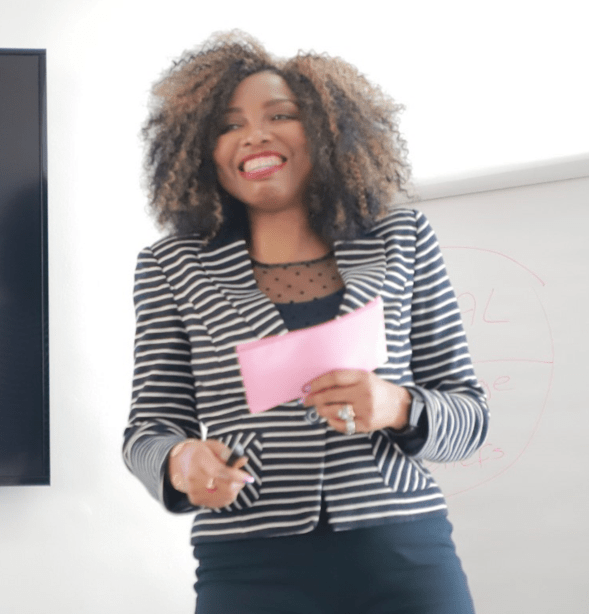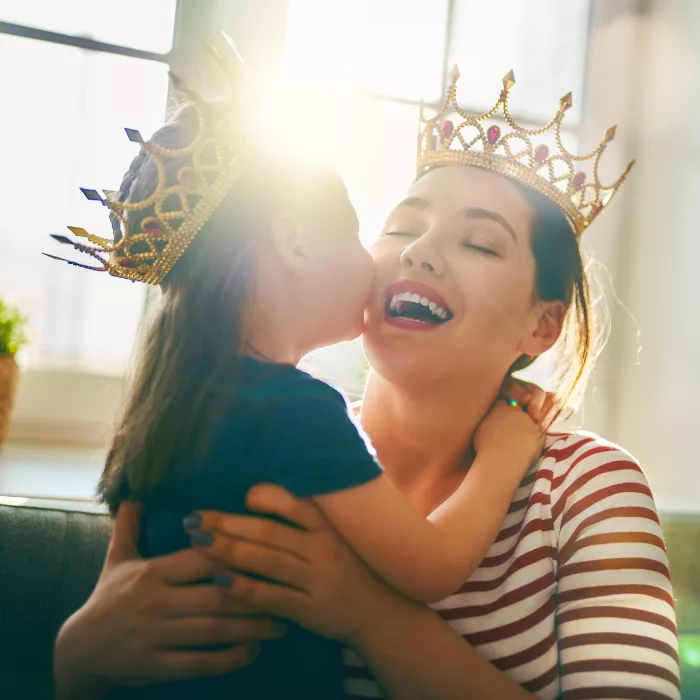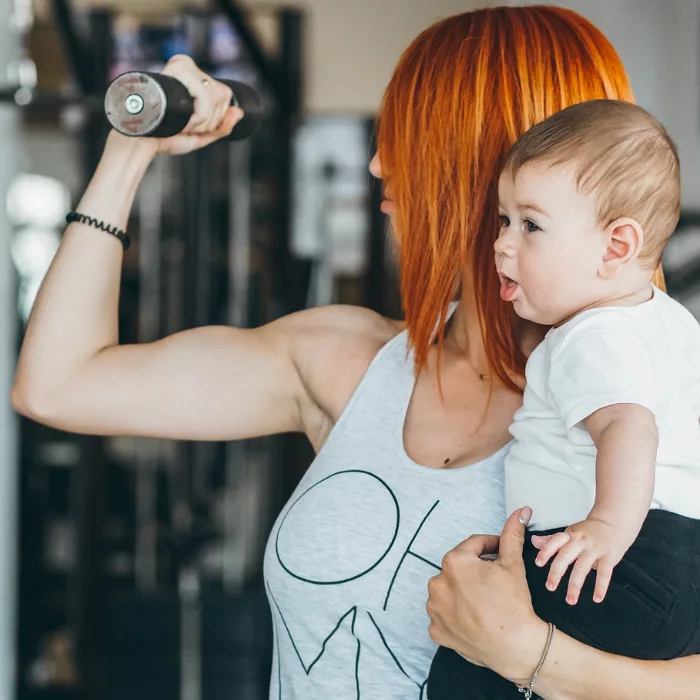
Stella Maher: Finding My Roar — My Journey from Insecurity to Becoming a Confidence Coach
Stella Maher is a confidence coach, mentor, and founder of the Lioness Within Community, a non-profit organization that supports young women in building resilience and confidence.
In this interview with Global Woman Magazine, Stella shares her personal journey and how it led her to become a confidence coach, as well as the strategies she uses to help young people boost their confidence and reduce social anxiety.
She also discusses the challenges faced by the Lioness Within Community in getting their Resilience and Confidence Building programme into schools, and the importance of taking a preventive attitude towards mental health in young people.
Stella’s passion for empowering young women shines through in her work, and her dedication to making the Resilience and Confidence Building programme accessible to every teenager in the UK is truly inspiring.

My Journey from Insecurity to Becoming a Confidence Coach
Global Woman — Interview
Stella Maher is a confidence coach, mentor, and founder of the Lioness Within Community, a non-profit organization that supports young women in building resilience and confidence.
What inspired you to become a confidence coach? What skills do you possess that make you an effective confidence coach?
I was inspired to become a confidence coach by my own struggles with feeling insecure, my low self-esteem, and my lack of self-belief. As a teenager growing up in Nigeria, I was constantly picked on by school bullies and called all sorts of names for being skinny and for my facial features. As a result, I developed very deep insecurities about my body image. Those insecurities followed me well into adulthood, and because I did not know any better back then, I allowed them to rule my life and affect my self-worth, my self-esteem, and my self-confidence.
My turning point came while I was running my small home business, marketing health and wellness products. I went through a great deal of personal development through trainings, seminars, conferences, and travelling to different countries, where I met lots of amazing people. The whole experience started to influence the way I saw myself. I started to view myself in a whole new light and to realise that the sky was the limit if I believed in myself. I also realised that I wanted to help other people reach their full potential and become the best versions of themselves, particularly people who were going through similar struggles as myself. That’s when I decided to become a life coach.
My qualifications as a professional personal performance coach, my experience working with my clients, my life experience, and my natural ability to be empathetic make me a very effective confidence coach.
How do you create relationships of trust with your clients during one-to-one coaching sessions?
Coaching is a very confidential process that is built on mutual trust and respect between the coach and client.
To build that relationship of trust with clients, you need to understand who they are as individuals, where they are in their lives, and where they are trying to get to; and the client needs to understand that your job is to guide them on their journey to their desired destination without judgement or condemnation and without betraying their confidence in you as their coach. That journey should not only take them to their desired destination, but it should also involve a great deal of learning and development for the client as well as for the coach.
One of my mentors put it very aptly by using the following analogy –
Your client is on ‘hell island’ and must travel through shark-infested waters to get to ‘paradise’. Your job as a coach is to show them how they can travel safely through the shark-infested waters to ‘paradise’ without being eaten by sharks.
What strategies do you use to help young people boost their confidence and reduce social anxiety?
I help them to understand that being confident means it’s alright to accept that you will not feel confident all the time. Even those who appear very confident are not always confident.
Being confident means accepting that you’re not perfect and that you will make mistakes and fail sometimes. It’s knowing that it’s alright for you to embrace your failures and learn from your mistakes. It’s finding ways around the obstacles that stop you from achieving your goals.
Being confident means being bold enough to go after what you want but also knowing when to pause and reflect on the things that are not quite working. It’s knowing when to ask for help and offering to help others when they need it. It’s knowing when to take time out to look after yourself.
When you find yourself in situations that trigger social anxiety, start by taking a deep breath—in through your nose and out through your mouth—as if you’re blowing bubbles. Do this six times. Find a private place like a toilet or an empty corridor to do this, as doing it in a social situation will only draw attention to you and make your anxiety worse.
Getting out of your own head by focusing your attention on something other than yourself helps to reduce that constant feeling of being judged or the fear that you will embarrass or humiliate yourself.
Challenge your negative thoughts; a quick way to do this is by literally talking back to them. For example:
“You will make a fool of yourself like you always do. No one will want to talk to you.”
“No, you’re completely wrong! I will be brilliant; I will fit in very nicely; I will make new friends and I will have an amazing time.”
Please note that these three steps will not automatically cure social anxiety. It takes time and practice, and in chronic cases of social anxiety disorder, psychotherapy or even medication may be required.
What would you consider the most important elements of a successful Resilience and Confidence Building Programme?
- Mindset: changing how you think by embracing a new way of thinking, which boosts confidence and the willingness to learn.
- Self-awareness is understanding who you are—your strengths and weaknesses—which reduces bullying because it helps to build empathy, understanding, and compassion for others and removes the need to be judgmental or to see others as threats.
- Goals: Developing a sense of purpose, focusing on your life’s purpose and passion, and setting goals in that direction.
- Managing stress and overwhelm, which promotes mental health and wellbeing.
- Accepting and loving who you are rather than feeling pressured to look “perfect” boosts self-esteem and prevents self-harm and disordered eating.

Tell me about a time when you were able to help someone successfully overcome their self-image issues.
A few years ago, I worked with a young woman who was finding it hard to fit into her new school because she looked different and had a different accent. She struggled to make friends and felt like she was constantly being judged. She also wanted to cut out unhealthy habits and live a fit and healthy lifestyle.
By the end of three coaching sessions, she had developed the confidence to get involved in extracurricular activities at her school, including mentoring younger pupils, which improved her people’s skills and ability to adapt socially. According to the testimonial she sent me at the end of our sessions, as her confidence grew, so did her willpower and resilience. She developed healthier eating habits and scheduled time to do her workouts regularly, which reduced her stress levels and gave her a newfound love for her self-image.
What challenges have you faced while working as a mentor in the Lioness Within Community?
Our biggest challenge is getting schools to consider our Resilience and Confidence programme important enough to schedule it into their curriculum, even after they’ve had a look at what we have to offer and can see how young people will benefit from it.
The schools and the department of education are very aware of the challenges young people are facing daily around their body image. There is so much pressure, particularly on young women, to conform to a certain body shape or image to be considered attractive.
A new British survey published by the Mental Health Foundation found that millions of British teenagers worry about their body image.
The online survey of British teenagers aged 13 to 19 found that–
- 31% were ashamed of their body.
- 40% said images on social media cause them to worry about their body image.
- 35% had stopped eating at some point or restricted their diets because of worrying about their body image.
- 40% said that things their friends have said have made them worry about their body image.
- 37% felt upset and ashamed about their body image.
When it comes to the resilience-building part of mental health for young people, the school system is not taking it seriously enough; they are not adopting a preventive attitude. They are not doing enough to protect young people from the intense emotional pressure that is causing some of them to self-harm or resort to disordered eating. They would rather wait to see the symptoms before taking any action. They would rather refer a young person to CAHMS than take steps to prevent them from developing self-destructive ways of coping with trauma and emotional stress.
Intervention underpins what we do at the Lioness Within Community. We believe that it is better to prevent young people from developing these problems in the first place by arming them with the skills that will help them cope with the unrealistic expectations around their body image and other life challenges that they will inevitably have to face. Waiting until they start to self-harm, become bulimic, or become anorexic is more painful for everyone involved. It will often require more resources and involve medical treatments, psychotherapy, cognitive behavioural therapy, counselling, support groups, etc., not to mention the associated costs.
Doesn’t it make more sense, in this case, to prevent rather than cure?
How do you manage challenging conversations with clients?
Before starting the coaching relationship with my clients, we go through what is known as an “intake process.” At this session, I explain the coaching process to my clients and ask them how tough they want me to be with them or how much they would like me to challenge them during the coaching process.
Having this conversation and establishing an understanding of how my clients would like me to be during the coaching process usually removes any challenge or awkwardness from our conversations.
Can you tell me about any success stories or examples of how your coaching has made a difference in someone’s life?
I had a client who had given up on a book project she was working on, and my coaching sessions with her motivated her to go back and complete her project.
Is there a target you must hit in the next 10 years, and if so, have you decided what strategy you will use?
My target for the next 10 years is for our Resilience and Confidence Building programme to be accessible to every teenager in the UK.
Strategies will involve collaborating with schools, colleges, youth charities, youth organizations, and experts in youth mental health, campaigning, organising events, and using the media, like The Global Woman Magazine, to raise awareness about what we do.








